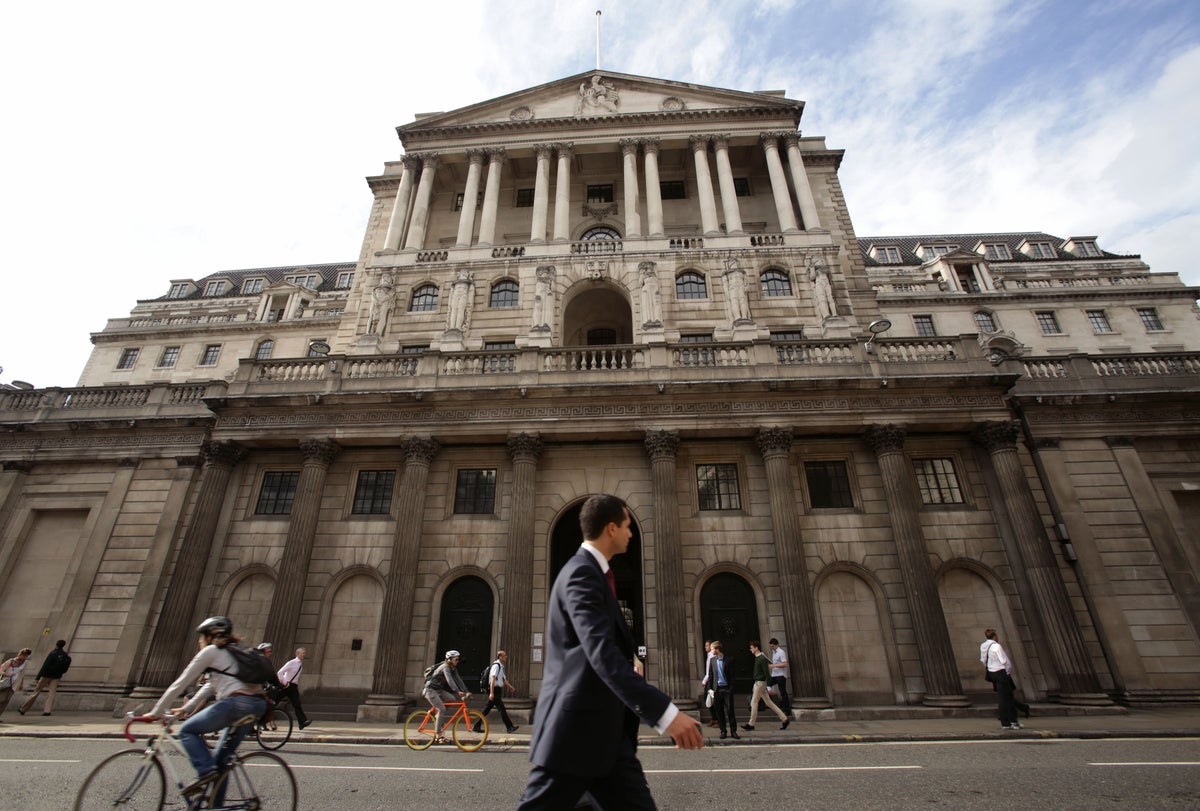
The Bank of England (BoE) defines inflation simply as a term used by economists to “describe the increase in prices over time”.
Rising costs in goods and services on the UK high street indicate that the value of the British pound is in decline, which in turn means a reduction in consumers’ purchasing power and therefore their quality of life, as they are discouraged from spending more than they can afford.
This in turn eats into national economic growth.
“A healthy economy needs to have a low and stable rate of inflation,” the central bank explains. “The government sets a target for how much prices overall should go up each year in the UK. That target is 2 per cent. It’s the Bank of England’s job to keep inflation at that target.
“A little bit of inflation is helpful. But high and unstable rates of inflation can be harmful. If prices are unpredictable, it is difficult for people to plan how much they can spend, save or invest.
“In extreme cases, high and volatile inflation can cause an economy to collapse. Zimbabwe is a good example. It experienced this in 2007-2009 when the price level increased by around 80 billion per cent in a single month. As a result, people simply refused to use Zimbabwean banknotes and the economy ground to a halt.”
The BoE sets monetary policy to exert control and prevent such situations arising, primarily through managing interest rates.
“Higher interest rates make it more expensive for people to borrow money and encourage them to save. That means that overall, they will tend to spend less,” the bank continues.
Cost of living: How to get help
The cost of living crisis has touched every corner of the UK, pushing families to the brink with rising food and fuel prices.
- The Independent has asked experts to explain small ways you can stretch your money, including managing debt and obtaining items for free.
- If you need to access a food bank, find your local council’s website using gov.uk and then use the local authority’s site to locate your nearest centre. The Trussell Trust, which runs many food banks, has a similar tool.
- Citizens Advice provides free help to people in need. The organisation can help you find grants or benefits, or advise on rent, debt and budgeting.
- If you are experiencing feelings of distress and isolation, or are struggling to cope, The Samaritans offers support; you can speak to someone for free over the phone, in confidence, on 116 123 (UK and ROI), email jo@samaritans.org, or visit the Samaritans website to find details of your nearest branch.
“If people on the whole spend less on goods and services, prices will tend to rise more slowly. That lowers the rate of inflation.”
In Britain, inflation is measured monthly by the Office for National Statistics (ONS), which checks the price of 700 typical goods and services that UK consumers regularly spend money on, from bread and milk to cars and foreign holidays.
The total price of a “basket” of such items is calculated to give us the Consumer Price Index (CPI), which is compared to its equivalent a year earlier to reveal how much the rate of inflation has risen over the past 12 months.
In its most recent announcement on 16 November, the ONS revealed that the UK’s rate of inflation rose to a 41-year-high of 11.1 per cent.
Food prices had their biggest leap upwards since 1977, while surging gas and electricity bills continued to drive the overall rise, the Office for National Statistics (ONS) said as it published the latest data.
The ONS said gas prices have leaped nearly 130 per cent higher over the past year, while electricity has risen by around 66 per cent.
Families were also hit by rising costs across a range of food items, which also pushed up the cost of living to eye-watering levels.
The jump in inflation - the biggest leap since March to April - comes despite the government energy support, which has sought to limit Ofgem’s energy price cap at around £2,500 a year.
Grant Fitzner, chief economist at the ONS, said: “Rising gas and electricity prices drove headline inflation to its highest level for over 40 years, despite the Energy Price Guarantee.”
He added: “Increases across a range of food items also pushed up inflation.
“These were partially offset by motor fuels, where average petrol prices fell on the month, while the price for diesel rose taking the disparity in price between the two fuels to the highest on record.
“There was further evidence that costs facing businesses are rising more slowly, driven by crude oil and petroleum prices.”
Martin Beck, chief economic adviser to the EY Item Club, said he expects the worst to now be over for inflation.
He said: “The EY Item Club thinks inflation has now peaked. The prospect of changes to the Energy Price Guarantee (EPG) - due to be announced in tomorrow’s autumn statement - means that it is hard to forecast the precise path of inflation over the next year.
“But, even in the unlikely event that the EPG were to be abandoned entirely, the contribution of energy prices would still fall back next year as large base effects come into play.
“Falling commodity prices suggest that food price inflation should also be close to its peak, while weaker activity should begin to ease capacity constraints and cool core inflation.”
He added that interest rates are unlikely to rise as much as financial markets expect, “given a likely peak in inflation, the prospect of the government announcing a large fiscal consolidation package, and that the economy appears headed for recession”.







